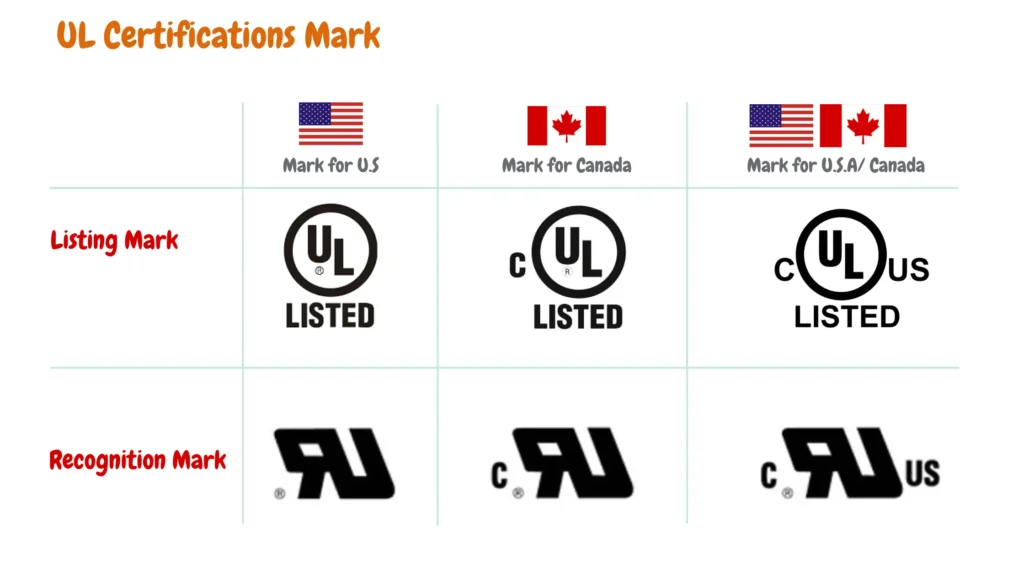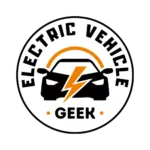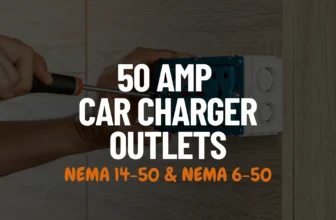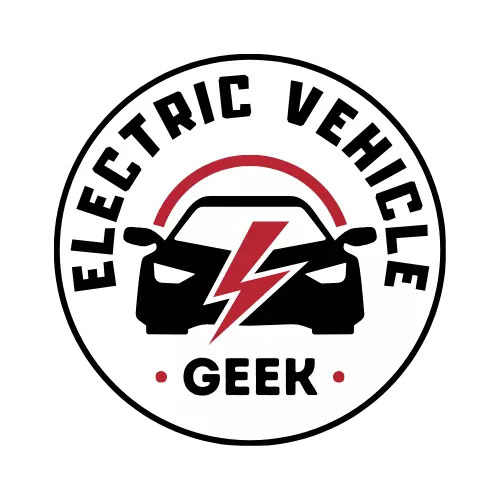In an age propelled by sustainable energy solutions, electric vehicles (EVs) have emerged as a cornerstone of eco-conscious transportation. With this shift comes a pressing need for reliable and efficient EV chargers. Opting for UL-certified EV chargers is crucial, ensuring both safety and performance.
These chargers adhere to rigorous standards, instilling confidence in users as they power up their electric vehicles. As the transportation landscape evolves, grasping the essential features of UL-certified EV chargers becomes pivotal in making an informed and sustainable choice for your EV charging needs.
What is UL Certification?
UL Certification, administered by Underwriters Laboratories (UL), is a hallmark of safety and reliability. Established in 1894, UL boasts a storied history of setting and upholding stringent safety standards across industries globally. The certification process involves exhaustive testing and evaluation, covering electrical, mechanical, and environmental factors.
This article emphasizes the vital role of UL certification in ensuring the safety and reliability of EV chargers. Whether you’re a consumer, a manufacturer, or a regulator, understanding the significance of UL certification is crucial for promoting safety in the growing EV ecosystem.

What is UL Certification for EV Chargers?
UL certification for EV chargers signifies that the charger has undergone rigorous testing and evaluation by Underwriters Laboratories (UL) to ensure it meets stringent safety and quality standards.
Benefits of UL-certified EV chargers include enhanced safety, improved reliability and performance, compliance with regulations, and peace of mind for consumers.
Underwriters Laboratories (UL) offer certification for EV infrastructure components, including:
- ANSI/UL 2202 Electric Vehicle Charging System Equipment (AC to DC): This standard ensures the safety of DC fast chargers (Level 3), providing rapid charging capabilities commonly found along highways.
- ANSI/UL 25942 Electric Vehicle Supply Equipment (AC to AC): This standard applies to AC chargers (Level 1 & 2), typically installed at homes and workplaces, offering slower but more convenient charging options.
- UL 2750 Outline Of Investigation For Wireless Power Transfer Equipment For Electric Vehicles: Ensuring the safety and reliability of wireless charging systems for electric vehicles, offering convenience and flexibility in charging.
- UL 9741 Standard for Bidirectional Electric Vehicle (EV) Charging System Equipment: Addressing the safety and performance of bidirectional charging systems, enabling vehicles to charge and discharge power to and from the grid.
- ANSI/UL 2231-12 and ANSI/UL 2231-22 Personnel Protection Systems: These standards provide general requirements and protective devices for personnel protection in EV supply circuits, ensuring user safety during charging.
- ANSI/UL 22512 Electric Vehicle Plugs, Receptacles, and Couplers: Ensuring the safety and reliability of plugs, receptacles, and couplers used in electric vehicle charging systems.
- UL 2580 Batteries for Use in Electric Vehicles: Ensuring the safety and performance of batteries used in electric vehicles, addressing concerns related to charging and usage.
- ANSI/CAN/UL/ULC 2271 Batteries for Use in Light Electric Vehicle (LEV) Applications: Addressing battery safety and performance specifically for light electric vehicles, such as electric bicycles and scooters.
- UL 61810-20, Outline of Investigation for Electric Vehicle Electromechanical Elementary Relays: Ensuring the safety and reliability of electromechanical relays used in electric vehicle charging systems.
Electric vehicles (EVs) represent more than just a shift in transportation; they introduce a comprehensive ecosystem of services to enhance safety, functionality, sustainability, and user satisfaction.
Beyond the standard charging infrastructure certifications, Underwriters Laboratories (UL) offers several key services that are integral to the EV charging experience:
- Certification programs such as EPA ENERGY STAR® and CHAdeMO protocol verification ensure energy efficiency and compliance with fast-charging standards for EV chargers, promoting cost savings and reliable charging.
- Electromagnetic Compatibility (EMC) testing ensures that EVs and associated equipment do not emit excessive electromagnetic interference, guarding against disruptions and health risks.
- FCC certification prevents interference with communication systems, ensuring the smooth operation of EV chargers.
- Cybersecurity assessments address vulnerabilities in EVs and infrastructure, mitigating the risk of cyberattacks and protecting user data and charging systems.
- Functional safety evaluations cover critical functions like braking and battery management, mitigating malfunctions that could lead to accidents or injuries.
These unseen yet critical services collectively contribute to EVs’ safety, reliability, performance, and supporting infrastructure. Individuals create a secure and sustainable EV ecosystem for all users by selecting equipment and services that adhere to these standards.
Why UL Certification Matters
- Addressing Safety Hazards: UL standards mitigate various safety hazards, including electrical faults, overheating, and ground faults, ensuring the safety of users and properties.
- Ensuring Quality: UL certification guarantees top-notch quality, from materials to design and functionality, ensuring reliable performance and longevity.
- The Price of Neglect: Non-certified chargers can pose significant risks, including fire hazards, property damage, injuries, and legal liabilities.
Features of UL-Certified EV Chargers
UL-certified EV chargers offer a range of safety and performance features tailored to meet the needs of electric vehicle owners:
Safety Assurance
UL certification guarantees overcurrent and thermal protection mechanisms, ensuring the EV’s and its surroundings’ safety. Rigorous testing and adherence to stringent standards provide peace of mind, with the UL Listing mark symbolizing reliability.
Optimized Charging Solutions
Designed for efficiency, UL-certified chargers provide diverse power outputs suitable for various EV models and charging needs. They offer compatibility with Level 1 & 2 standards, ensuring widespread adaptability, while smart charging technology enhances efficiency and grid stability.
Universal Compatibility
With multiple connector types like SAE J1772 and IEC 62196, UL-certified chargers accommodate a wide range of EVs. Standardized communication protocols such as CHAdeMO and CCS facilitate seamless data exchange, ensuring interoperability across different vehicles. Chargers are also engineered to cater to specific requirements, enhancing flexibility and convenience.
Durability and Reliability
Constructed with high-quality materials and subjected to stringent testing, UL-certified chargers are built to last. Weather-resistant features protect against environmental elements, ensuring reliable operation in all conditions.
User-Friendly Design
User-centric design features, including intuitive displays, controls, and generous cable lengths, make charging hassle-free and straightforward. Convenient storage solutions and ergonomic design considerations prioritize user comfort, offering a seamless and pleasant charging experience.

James Ndungu is a certified EV charger installer with over five years of experience in EVSE selection, permitting, and installation. He holds advanced credentials, including certification from the Electric Vehicle Infrastructure Training Program (EVITP) and specialized training in EV charging equipment and installation, as well as diplomas in EV Technology and Engineering Fundamentals of EVs. Since 2021, James has tested dozens of EV chargers and accessories, sharing expert insights into the latest EV charging technologies.







